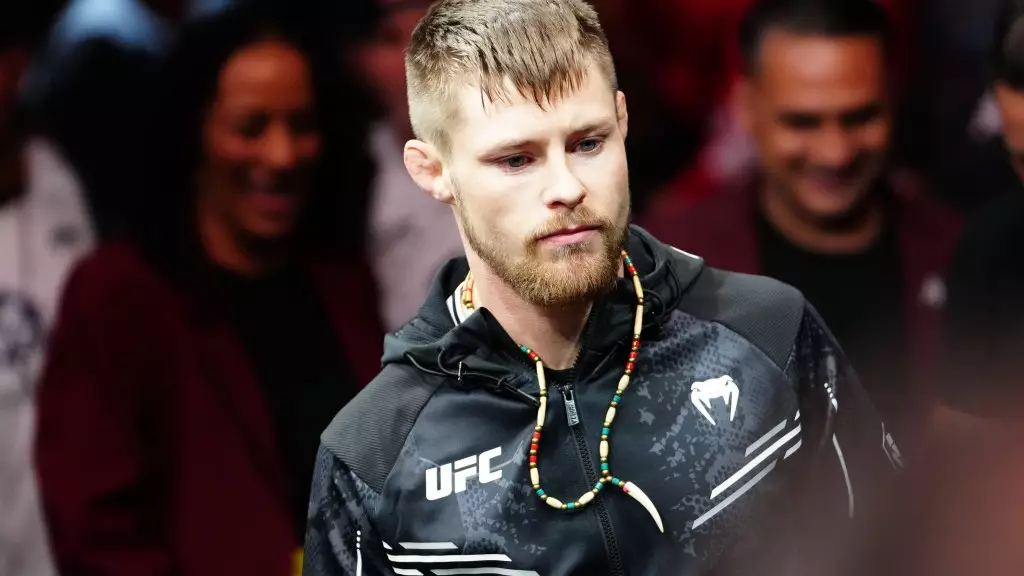UFC fighter Bryce Mitchell has drawn significant backlash over his recent comments regarding Adolf Hitler during a podcast episode that has since sparked outrage among fans, public figures, and the broader community. The crux of the controversy lies in Mitchell’s assertion that Hitler was “a good guy” based on his own deluded interpretation of history. Such statements, particularly concerning a figure associated with immense suffering and the Holocaust, are not only reckless but also indicative of a broader issue—misinformation and the consequences of uncritical thinking. When a public figure with a substantial following makes such statements, the implications extend beyond personal accountability; they reach into the realm of societal influence and the potential normalization of extreme ideologies.
Public Response and Fallout
Mitchell’s comments did not go unnoticed. UFC CEO Dana White publicly condemned the remarks, labeling them profoundly concerning and criticizing Mitchell as “literally one of the dumbest human beings.” This statement of disapproval from an industry leader highlights the severity of the situation, emphasizing how a single individual’s thoughts can reflect poorly on an entire organization. White’s reaction encapsulates a wider societal consensus: that hate speech and historically inaccurate representations of figures like Hitler must not be tolerated, especially in a sport that aims for inclusivity and respect among its athletes.
Following the uproar, Mitchell attempted to clarify his stance on social media, expressing regret over the insensitivity of his comments. He acknowledged the horrors of the Holocaust and firmly stated he does not condone Nazi ideologies. Yet, this clarification feels like a surface-level response to a deeply ingrained issue. While it is commendable to apologize, true accountability encompasses much more than a brief statement; it requires a commitment to understanding the oppressive ideologies one inadvertently promotes.
Another layer to this controversy is the notion of freedom of speech. As Rolando Delgado, a co-host on the ArkanSanity Podcast, eloquently noted, “freedom of speech doesn’t mean freedom from the consequences.” Indeed, Mitchell is experiencing repercussions, not only for himself but also for those who associated with him during the podcast discussion. Delgado’s comments reveal a vital truth: the right to express oneself comes with the obligation to be well-informed and considerate of the historical ramifications tied to certain language and ideas. In the context of this incident, the question arises—how often do we consider the impact of our words in the age of social media, where information and misinformation can spread like wildfire?
The fallout from Mitchell’s controversial remarks leaves many questioning his future in the sport and whether UFC as an organization will take any formal action beyond public condemnation. The implications for Mitchell extend beyond mere reputation; they touch vital aspects of his career, personal growth, and public responsibility. Athletes wield a significant influence, often acting as role models to fans—especially young ones—who idolize their personas. Thus, a commitment to educating oneself about historical truths and societal implications is paramount.
Furthermore, the UFC and other sporting organizations face a pivotal moment in addressing the challenges posed by athletes who express extremist views. This incident should serve as a catalyst for ongoing conversations about how professional leagues can better handle issues of hate speech, misinformation, and their responsibility to the public. Ignoring or inadequately addressing such matters could create an environment where harmful ideologies seem acceptable, undermining the spirit of competition and camaraderie in professional sports.
Bryce Mitchell’s remarks exemplify a disconcerting trend where athletes bear the responsibility of not only their actions in the ring but also their words off the mat. As society grapples with the implications of freedom of speech and its intersection with history, we must strive for a culture of informed discourse and accountability. For Mitchell, self-reflection and a genuine commitment to understanding the gravity of history are paramount steps in repairing not only his public image but also in contributing positively to a world that has no room for hate. In the quest for progress, the potential for learning from our missteps is perhaps our most vital opportunity.

